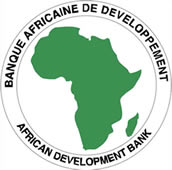The bulk of local vegetable crops such as tomato, hot pepper, eggplant, okra, onion and shallots are produced in the rural areas. Fruit crops such as pineapples, citrus, banana, pawpaw, mango and avocado are grown commercially mainly along the coastal savanna and rainforest zones of the country. Many institutions and other private individuals practice landscape horticulture. The practice of floriculture and nursery stock production is done mainly by a few institutions and some private sector concerns.
The industry in the last eight years has seen a total transformation in several activities which have led to the current level of growth. The private sector-led management of sea freight logistics, successful public-private partnership, strategic response to market demands and the diversification of air freight into higher value products such as Asian vegetable and minimally processed fruits have all contributed to the current success in the industry.
The Horticulture Division of the Department of Crop Services is primarily responsible for the promotion and development of fruits and vegetable in general and specifically non-traditional horticultural crops such as pineapple, cashew, black pepper and mangoes for export. It is also responsible for testing technologies developed at the various research institutes for local adaptation. Finally, the Division serves as a link between research institutions and provides high yielding, disease resistant and adaptable planting materials to farmers in the various ecologies of the country.
Investment opportunities are made available for companies to produce horticultural products for the local and international markets, especially to European markets. The EU is the main destination for Ghanaian horticultural exports.
Also Opportunities are made available to invest in supply chain management to add value to the horticultural products. The supply chain can combine commercial quality (branding) of the product together with environmental quality (labels/certificates) and social quality (labels/certificates) in their product proposition towards their customers.
Furthermore, Incentives are provided for the sector under the following provisions: There is custom duty exemption for agricultural and industrial plant, machinery and equipment imported for investment purposes, listed companies enjoy corporate tax of 25% and newly listed companies enjoy 25% corporate tax for the first three years, there are locational Incentives (tax rebate) for manufacturing industries located in the regional capitals.
REFERENCE: Ghana Investment Promotion Center




































